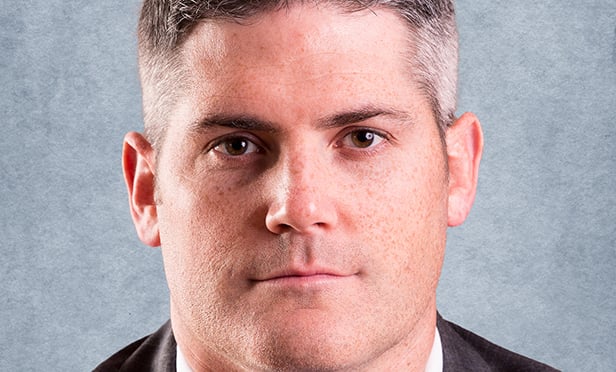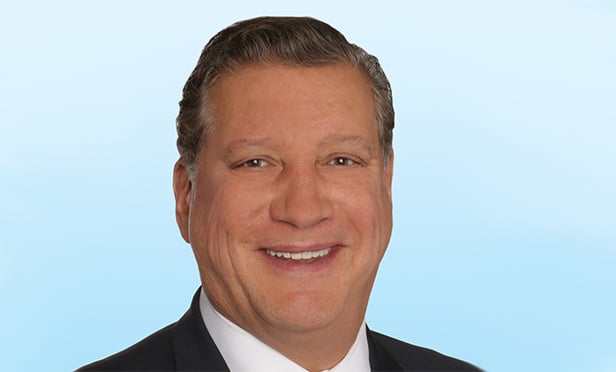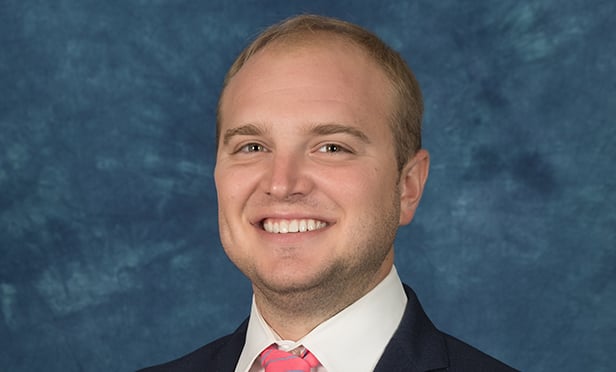
CHICAGO—There's a right way and a wrong way for property managers to develop a relationship with tenants and potential tenants through social-media content, Eric Brey, PhD, tells GlobeSt.com. Brey, an associate professor in the School of Hospitality Leadership at the University of Wisconsin-Stout, will be leading the presentation “Driving Revenue Through Effective Social Media Content” during the IREM Global Summit here Oct. 10-13. We sat down with him for a chat about how property managers can use social media effectively, what to avoid and why social-media content is important to commercial real estate.
GlobeSt.com: What are the main ways the property managers can drive revenue through social media content?
Brey: The whole point about talking about content and driving that home is that's how a brand creates relationships with customers. “Relationship” is an overused term, and many brands don't really go into how to create that relationship. Brands will often use social media as a means to constantly bombard customer with sales pitches; it's all about “me, me, me.” But, it should be a ratio of 10:1, where 10 posts should be content that has meaning or interest to the customers and only one should be about the product and brand.
You're looking for a relationship to drive revenue, and there are great examples where brands use things of interest to their users to create that relationship. It makes them more open to remaining loyal to that brand and purchasing. The idea of this session is that we're going to focus on informing property managers on how to demonstrate the benefits to customers to drive that rental price. Everyone wants to increase value and relate to customers on a personal level so they're more likely to be loyal and spend more money there. Social media can also demonstrate opportunities for tenants who are looking for a degree of involvement with other tenants.
GlobeSt.com: Why is this important to the CRE industry?
Brey: First and foremost, it's about listening to the people around them. Social media is not a one-way street, but for a lot of companies in this area, it's really being used like a one-way megaphone: “This is what I have and why you should like me.” You've got to get them to start listening. Once you have people engaged, they will give you honest feedback. At the base of every social-media strategy is listening—knowing what people are saying about you. And this is outside of review sites—that's all well and good, but if you're not setting up those listening channels in social media with something as simple as Google Alerts, and listening and responding to people, you're using social media wrong. It goes back to creating that relationship.
For the folks at this conference, this is an opportunity to service those individuals. You need to be listening to current, potential and past customers to try to fix what's inside the property and highlight the property. You're trying to listen, and that's important for the industry. It's also important to highlight the property, and this has to go beyond the physical. When you look at a product or service you buy—in this case, an apartment rental—at its core, you're not renting an apartment but a place to stay. That's where people catch on. You need to create an “it” factor, so potential customers say, “That's cool—how can I get involved?” You trying to get to the leading indicator, not the lagging indicator, which is money.
GlobeSt.com: What are the main things that property managers should avoid in the social-media realm?
Brey: The biggest one is trying to be someone else. If you have a certain personality as a company, you can't be a different personality online. You have to match those. If you have fantastic social-media content, and people check you out, but you're not that way in the real world, that's a huge no-no. If you're bigger, better and bolder on social media, but the truth comes out, people are turned off by that. You have to live your brand online.
A second thing to avoid is going beyond the realm of friendly business practices. Sometimes companies will bring in someone fresh out of college and say, “This is our social media; go make us some money” or “You're in charge of it.” Well, they may be good at engaging with friends and family, but they're not trained in how to do it without stepping on people's toes. They must be cognizant of the way things are interpreted. They need to be trained in business practices as well as social media. Most property managers are pretty conservative. You can have fun, but this is a present or potential customer, and you can get too friendly too fast.
The third biggest mistake is starting and then stopping. You need to be where your customers are. Don't start a social-media campaign and then stop it six months later. Start with key outlets that work for you and where your company is and go from there.
GlobeSt.com: What else should our readers know about your session?
Brey: The most important thing I want to press is that attendees will be given the tools to accomplish what's next. It will not be just a discussion of what to do on Facebook. This is a strategy, and whether you're new to social media or advanced, you will gain something. I've taken the time to outline what property managers can do, based on the fact that we're all time starved: here are the four things you can do to get you started and on your way. It's important because these are the specific steps.

CHICAGO—There's a right way and a wrong way for property managers to develop a relationship with tenants and potential tenants through social-media content, Eric Brey, PhD, tells GlobeSt.com. Brey, an associate professor in the School of Hospitality Leadership at the University of Wisconsin-Stout, will be leading the presentation “Driving Revenue Through Effective Social Media Content” during the IREM Global Summit here Oct. 10-13. We sat down with him for a chat about how property managers can use social media effectively, what to avoid and why social-media content is important to commercial real estate.
GlobeSt.com: What are the main ways the property managers can drive revenue through social media content?
Brey: The whole point about talking about content and driving that home is that's how a brand creates relationships with customers. “Relationship” is an overused term, and many brands don't really go into how to create that relationship. Brands will often use social media as a means to constantly bombard customer with sales pitches; it's all about “me, me, me.” But, it should be a ratio of 10:1, where 10 posts should be content that has meaning or interest to the customers and only one should be about the product and brand.
You're looking for a relationship to drive revenue, and there are great examples where brands use things of interest to their users to create that relationship. It makes them more open to remaining loyal to that brand and purchasing. The idea of this session is that we're going to focus on informing property managers on how to demonstrate the benefits to customers to drive that rental price. Everyone wants to increase value and relate to customers on a personal level so they're more likely to be loyal and spend more money there. Social media can also demonstrate opportunities for tenants who are looking for a degree of involvement with other tenants.
GlobeSt.com: Why is this important to the CRE industry?
Brey: First and foremost, it's about listening to the people around them. Social media is not a one-way street, but for a lot of companies in this area, it's really being used like a one-way megaphone: “This is what I have and why you should like me.” You've got to get them to start listening. Once you have people engaged, they will give you honest feedback. At the base of every social-media strategy is listening—knowing what people are saying about you. And this is outside of review sites—that's all well and good, but if you're not setting up those listening channels in social media with something as simple as
For the folks at this conference, this is an opportunity to service those individuals. You need to be listening to current, potential and past customers to try to fix what's inside the property and highlight the property. You're trying to listen, and that's important for the industry. It's also important to highlight the property, and this has to go beyond the physical. When you look at a product or service you buy—in this case, an apartment rental—at its core, you're not renting an apartment but a place to stay. That's where people catch on. You need to create an “it” factor, so potential customers say, “That's cool—how can I get involved?” You trying to get to the leading indicator, not the lagging indicator, which is money.
GlobeSt.com: What are the main things that property managers should avoid in the social-media realm?
Brey: The biggest one is trying to be someone else. If you have a certain personality as a company, you can't be a different personality online. You have to match those. If you have fantastic social-media content, and people check you out, but you're not that way in the real world, that's a huge no-no. If you're bigger, better and bolder on social media, but the truth comes out, people are turned off by that. You have to live your brand online.
A second thing to avoid is going beyond the realm of friendly business practices. Sometimes companies will bring in someone fresh out of college and say, “This is our social media; go make us some money” or “You're in charge of it.” Well, they may be good at engaging with friends and family, but they're not trained in how to do it without stepping on people's toes. They must be cognizant of the way things are interpreted. They need to be trained in business practices as well as social media. Most property managers are pretty conservative. You can have fun, but this is a present or potential customer, and you can get too friendly too fast.
The third biggest mistake is starting and then stopping. You need to be where your customers are. Don't start a social-media campaign and then stop it six months later. Start with key outlets that work for you and where your company is and go from there.
GlobeSt.com: What else should our readers know about your session?
Brey: The most important thing I want to press is that attendees will be given the tools to accomplish what's next. It will not be just a discussion of what to do on Facebook. This is a strategy, and whether you're new to social media or advanced, you will gain something. I've taken the time to outline what property managers can do, based on the fact that we're all time starved: here are the four things you can do to get you started and on your way. It's important because these are the specific steps.
© 2025 ALM Global, LLC, All Rights Reserved. Request academic re-use from www.copyright.com. All other uses, submit a request to [email protected]. For more information visit Asset & Logo Licensing.








